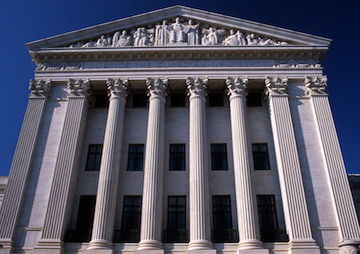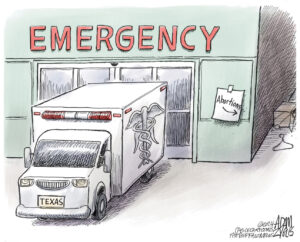How the GOP’s Bid to Delay Scalia’s Replacement Could Play to Obama’s Advantage
Obama's GOP foes may want to rethink their strategy if they think that forming a congressional human wall instead of approving the president's pick to replace the late Supreme Court Justice Antonin Scalia is the way to count down Obama's final year in office. Wikimedia / CC BY 2.0
Wikimedia / CC BY 2.0
Prominent Republican operatives including Senate Majority Leader Mitch McConnell and presidential contender and fellow senator Ted Cruz have made it clear that President Obama will be blocked by their favorite formation — the congressional human wall — should he attempt to replace the late Supreme Court Justice Antonin Scalia during the next 11 months. But Obama’s foes may want to rethink that strategy.
As Linda Hirshman wrote in The Washington Post on Sunday, leaving Scalia’s seat vacant would open a host of opportunities for Obama to make major gains on some highly contested rulings:
So in the cases that Scalia was already a part of, what’s most likely is that the court will do what it has done in the rare, similar circumstances in the past, when important cases like abortion were argued and the personnel on the court changed or where a predictable swing justice was out sick: They will order the cases argued again and voted on again.
Of course, the justices will also continue to hear future arguments, but upcoming closely decided cases — such as the abortion case out of Texas also widely predicted to lead to a 5 to 4 vote — will now be tied, 4 to 4. In this term’s contentious, controversial docket, split decisions are inevitable. The court can reargue the pending cases and hear the upcoming ones, but they will be too divided to decide anything truly sweeping. Unresolved cases will stack up.
That means only Congress and the White House can resolve the deadlock. And Obama has the power there, even though Republicans control the Senate. By Saturday evening, Senate Majority Leader Mitch McConnell (R-Ky.) had already said the vacancy shouldn’t be filled until the next president is in office, 11 months from now. “The American people should have a voice in the selection of their next Supreme Court justice,” he said. “Therefore, this vacancy should not be filled until we have a new president.”
But the GOP might soon reconsider if they see the implications of refusing to allow Obama to replace Scalia: A divided court leaves lower court rulings in place. And the lower courts are blue. Nine of the 13 U.S. Courts of Appeals have a majority of Democratic appointees. That means liberal rulings conservatives were hoping the Supreme Court would overturn remain law. So if Scalia had cast the deciding vote on a case before he died, but the court rehears it and divides 4 to 4, that would leave the lower court decision in place. That’s what would happen with a proposal to apportion Congress in an entirely new way that would heavily favor Republican districts, which was argued recently. The lower court (in this case a district court which went directly to the Supreme Court for technical reasons) tossed the plan out; conservatives had been hoping the justices would restore it.
Hirshman’s piece reads like a mini crash course in Supreme Court protocol, but the impromptu schooling is worth it. McConnell, Cruz and their set might also do well to look it over before inventing reasons to keep the likes of Sri Srinivasan off the bench.
–Posted by Kasia Anderson
Your support matters…Independent journalism is under threat and overshadowed by heavily funded mainstream media.
You can help level the playing field. Become a member.
Your tax-deductible contribution keeps us digging beneath the headlines to give you thought-provoking, investigative reporting and analysis that unearths what's really happening- without compromise.
Give today to support our courageous, independent journalists.






You need to be a supporter to comment.
There are currently no responses to this article.
Be the first to respond.